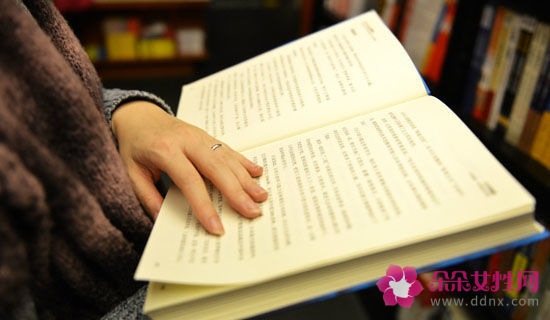梦见打雷,yy年度盛典2015视频,遂川天气
短文改错专项训练三大原则
1. 实词以改变形式为原则

在改错中,实词的处理一般只是改变它的形式,而不能改变其词义也不能改换成另一个实词,更不能随便给添删。如:
(1) Soon I began to enjoy talk to myself on paper as I was learning to express me in simple English.
【解析】本题考查的是enjoy后接动名词的用法。但是有些同学的改法是把enjoy删掉,原句就变成了Soon I began to talk to myself on paper as I was learning to express me in simple English。这样做虽然改正了语法错误,但是也改变了原来的句子所要表达的意思,故不能这样改。本题的正确改法是把talk改为talking。
(2) Finding information on the Net is easily. But not all…
【解析】应把easily改为easy。因为一般的副词不能作表语,而应用形容词。切记不要换成 simple 或其他的近义形容词。simple意思为很普通,很常见,(所以很简单),而easy就是简单的意思,从难度上来表达的。两者表达的角度不一样。
2. 以保持原意不变为原则
一般应遵循保持句子原意的原则,即不能改变文章或作者所表达的意思,包括其语气和上下文的逻辑关系。只对短文中的用词错误、语法错误、行文关系错误进行改正,且要小改而不大改。如:
(1) …are still many people living in poor conditions. They make their lives. (广东卷)
【分析】lives→living。make a / one’s living 为一固定短语。只需将 lives 改成 living 就可以了,不要将 their lives 改为 a living。
(2) But I have spent most my money, so I cannot… (四川卷)
【解析】在my前加 of。也有同学去掉 most,这种改法虽改正了语法错误,但改变了原意。作者想说的是“花掉了大部分的钱,而不是全部”。
3. 虚词以添加或删除为原则
历年高考题需要添加或删除的地方为三四处。这些需要添删的词一般是冠词、代词、介词、关系词等,而动词、名词等的添删则不是很常见,因为太容易改变句子的原意。
(1) From his answer we shall know the something now.
【解析】不定代词前不能加冠词,所以故去掉the。
(2) Then I began to pay more attention my pronunciation.
【解析】固定搭配pay attention to后缺少介词to,应加上。
中考英语专项训练:短文改错(5)
I have come in China for two years. My friends in 1. __________
England sometimes write to me, ask me how long 2. __________
I’ll stay here, when I’m thinking of returning 3. __________
home. The answer of their questions is simple: I 4. __________
do not know when I return home. At the moment, 5. __________
I have no reason to return back to England. I like 6. __________
living in China; I enjoy meeting Chinese people 7. __________
and travel around the country. My work is very 8. __________
interested, and there are so many things I don’t know 9. __________
about China that I hope to discover it in the future. 10. ________
【答案解析】
1. 将come改为been。come是终止性动词,不与时间段连用。
2. 将ask改为asking。现在分词作伴随状语。
3. 在when前加and。 when引导的从句与how long引导的从句是两个并列的宾语从句(作asking的宾语)。
4. 将of改为to。在answer, key, way, entrance等名词后,习惯上用介词to。
5. 在return前加will。这是将来时。注意:不要误以为when引导的是时间状语从句,用一般现在时代替将来时。事实上,when引导的是宾语从句。
6. 去掉back或将return改为go。因为return=go back。
7. 此行正确。
8. 将travel改为traveling。因为traveling与meeting并列,作enjoy的宾语。
9. 将interested改为interesting。表示某事物“令人……的”用-ing形容词;-ed形容词则表示某人“感到……的”。
10. 将it改为them。因为此处是指many things。
中考英语专项训练:短文改错(4)
Thank you for your offer invite me to the free 1. __________
summer English course in your school. As for my 2. __________
choice of the two courses, I’d prefer the five-weeks 3. __________
course for 50 hours. This would allows me more 4. __________
time to see your beautiful country while learned 5. __________
language. I’d like to do some traveling and make 6. __________
a few new friends. In all the subjects I’m learning 7. __________
at school, I like English best. I hope me to take this 8. __________
chance to improve my spoken English level as much 9. __________
as possibly. I believe I will have a wonderful time 10. _________
in England this summer.
【答案解析】
1. 把invite改为inviting。现在分词作定语修饰offer。
2. 此行正确。
3. 把five-weeks改为five-week。“数词+连字符号+名词”作定语,其中的名词要用单数。
4. 把allows改为allow。在助动词will, would及情态动词can, may, must等后面,永远要用动词原形。
5. 把learned改为learning。while learning=while I’m learning。
6. 在language前加the。特指英语这种语言。
7. 把In改为Of。subjects“科目”,English是其中一个“科目”,表示最高级的比较范围,若是整体与个别的关系,就用of。指时间、地点范围,才用in。
8. 去掉me。主语希望自己做某事,直接用hope to do sth,事实上,也不能用hope sb to do sth这一句型。
9. 去掉level。这是中文式英语。improve=make…better。
10. 把possibly改为possible。as…as possible(尽……)是习语。
中考英语专项训练:短文改错(3)
I live in the country and my father was a farmer. 1. __________
He is now forty-five year old. Because of years of 2. __________
hard work, he looks old than his age. When I was 3. __________
young, he is used to tell me the importance of study. 4. __________
Father knows little about English and other subjects, 5. __________
but he usually gives me some good advices on how 6. __________
to learn my lessons good. He is not only kind to me 7. __________
but also very strict in me. With his help, I’ve made 8. __________
great progress. I’ll never to forget what he taught 9. __________
me. I think my father is best father in the world. 10. _________
【答案解析】
1.was 改为 is。根据上下文的时态可知。
2. 第一个year改为years。因它受 forty-five 的修饰。
3. old 改为 older。因其后有表示比较的' than。
4. 去掉is。比较:used to=过去经常,be used to=习惯于。
5. 此行无错。
6. advices 改为 advice。advice 为不可数名词。
7. good 改为 well。修饰动词要用副词,不用形容词。
8. in 改为 with。be strict in后接某事,be strict with后接某人。
9. 去掉to。因助动词will后要接动词原形,不能接不定式。
10. best 前加 the。形容词最高级前通常要加定冠词。
中考英语专项训练:短文改错(2)
Mary is my best friend. We’re all from Henan, 1. _____
but now I live in Beijing when she lives in 2. _____
Guangzhou. We don’t look each other very often, 3. _____
but we’re keep in touch all the time. I often write 4. _____
to Mary and telling her about the things that 5. _____
are happened at my company, and she often 6. _____
writes to me about her work. We talk on phone 7. _____
once a week. Sometime I call her on her 8. _____
car phone, or we send e-mail to each other. 9. _____
We’re really luck. There are so many ways 10. ____
we can keep in touch with each other.
【答案解析】
1. all改为both。指Mary和作者两个人。
2. when改为and或while。因为两个分句没有主从关系。而是并列关系,或者有对比或对照的含义。
3. look改为see。因为此句意为“两个人不能经常见面(see)”。
4. 去掉keep或把we’re改为we。因为keep是动词,若不是进行时态或被动语态,动词前不用be,但句中没有动词时必用be。所以去掉keep或去掉are,
5. telling改为tell。tell和write是并列谓语。
6. happened改为happening。因为这是现在进行时态。
7. phone前加the。因为on the phone是习语,意为“用电话(交谈)”。
8. Sometime改为Sometimes。此处表示“有时候”,而不是表示“某个不定的时候”。
9. 此行正确。
10. luck改为lucky。用形容词作表语。
中考英语专项训练:短文改错(1)
We’ve just moved in a house and we want to 1. _____
buy a new color television set, and I’m not 2. _____
sure about a size. Maybe we should buy a big 3. _____
one. If we buy a small one, we might have 4. _____
to change for it in a few years’ time for a bigger 5. _____
one. My husband thinks it’s no necessary to buy 6. _____
a very big one. He said our sitting room isn’t very 7. _____
big. If we put in a very big television, they will 8. _____
be bad for our eyes. Anyway, we’d better to make 9. _____
quick decision because the price may go up soon. 10. ____
【答案解析】
1. in改为into。in“在……里”表静态的位置;而into则表动态的位置,意为“进入”。
2. and改为but。前后句之间是转折关系。
3. a改为the。这里表特指,指要买的电视机的大小。
4. 此行正确。
5. 去掉第一个for。“把A物换成B物”的英语表达是change A for B。文章中该句句意为“几年之后就要把小电视换成大电视”。
6. no改为not。因为no是形容词,修饰名词,而necessary是形容词,所以要用副词not来修饰。
7. said改为says。因为上下文都是用的一般现在时,这里指现在的思想,现在的想法。
8. they改为it。这里指的是the big television。
9. 去掉to。had better后接动词原形。
10. quick前加a。make a decision意为“作出决定”。
【短文改错专项训练三大原则】相关文章:
3.英语短文改错口诀
4.短文改错基本技巧
5.BEC短文改错题
6.短文改错技巧
7.短文改错做题技巧
8.短文改错答题技巧



